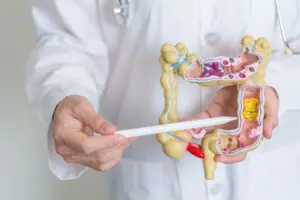
Fasting and acidity: Fasting has become a buzzword today, whether it’s for weight loss, religious practice, or detox. Some people swear it soothes acidity, while others insist it makes things worse. So, what’s the real story? In this guide, we unpack what acidity actually is and how fasting might affect it.
What is acidity?
Acidity or acid reflux happens when your stomach acid flows back into the oesophagus. It can cause symptoms like burning sensations in your chest, a sour or bitter taste in your mouth, bloating, feeling uneasy, or just feeling full after eating a small meal. Your stomach naturally produces acid to break down food. But when that acid goes where it shouldn’t, it causes trouble.
Also Read | Acidity and indigestion? Try these ayurvedic natural remedies at home
How does fasting affect the stomach?
Fasting means going without food for a certain period of time. When it comes to acidity, fasting can have both positive and negative effects. Giving your digestive system a break may reduce acid production and ease discomfort for some people. On the other hand, prolonged periods without food can sometimes exacerbate acid build-up, resulting in a burning sensation.

How fasting may help with acidity
Eating large meals fills the stomach and can push acid upward into the oesophagus. By fasting, you reduce that risk. Giving the digestive system a break may also ease bloating and acid buildup. Fasting can further support weight loss, and shedding excess belly fat may reduce pressure on the stomach, lowering the chances of acid reflux over time.
How fasting can make acidity worse
Even when empty, your stomach continues to produce acid. Without food to digest, this acid can irritate the stomach lining, causing heartburn or ulcers in some people. Skipping meals and then eating one large meal can also overload the stomach, making reflux more likely.
What science says
Research on fasting and acidity shows mixed results. Outcomes often depend on the type of fasting, meal choices, and an individual’s body. Some small studies suggest that intermittent fasting may improve digestion and reduce inflammation, which could benefit those with acid reflux.
Also Read | Do you have acidity often? These 8 habits might be why
Fasting’s effect on acidity depends on your method and your body’s response. If you decide to fast, focus on eating smart, staying hydrated, and avoiding common trigger foods.








